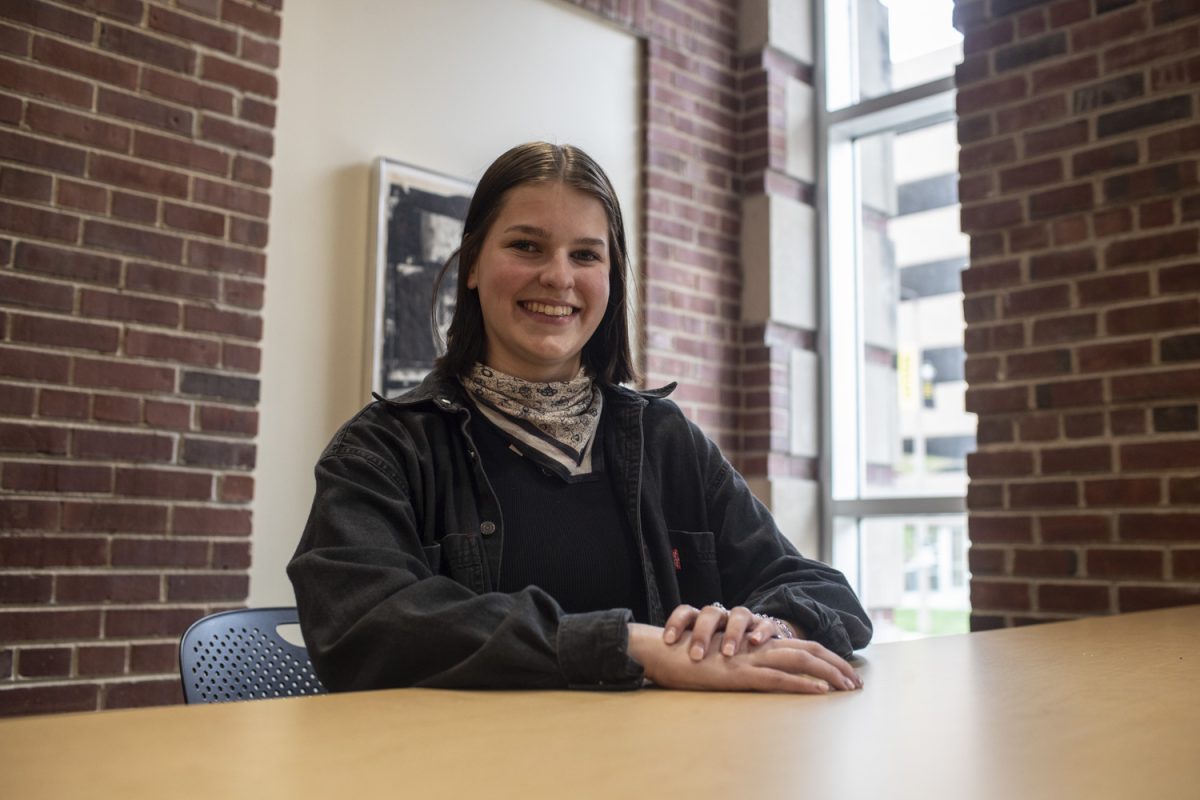Bryce T. Bauer is the co-writer and coproducer of the film Whiskey Cookers: The Amazing Story of the Templeton, Iowa Bootleggers and the author of Gentlemen Bootleggers: The True Story of Templeton Rye, Prohibition, and a small town in Cahoots. His documentary, Whiskey Cookers, a film about a small Iowan town during Prohibition, premièred last weekend at the Landlocked Film Festival in Iowa City.
The Daily Iowan: You grew up in Audubon, Iowa — how did you come across the stories of bootlegging in Templeton?
Bauer: So my director, Dan Manatt, and I always heard of these stories just through the years. The people we would go hunting with would talk about it: how they would get it from going to Stockyard in Chicago or when they were just at dances and parties around. I mean, it was always such a big deal during Prohibition. That’s when we first heard of the story and got an idea of what it was like.
DI: Have you always been interested in this topic of bootlegging in Templeton, or was it more of a recent interest?
Bauer: Well, we started working on this in 2005, part of an oral-history project. We just started collecting stories of some of the people who knew of it because, you know, people were getting older, and we were worried a lot of these stories were going to be lost. And at that time, we had been told there would be no documentary evidence, that it had been kept a secret, and no one wrote anything down. We started getting more involved with the people of Templeton, a couple of the community members, Elaine Schwaller and her husband, Lambert. He was gone by the time we started this project, but he had started collecting stories from people around the community. It was mostly old newspapers, which led us to case files at the National Archives. That’s when we realized there was actually documentary evidence, and we could do something large scale.
DI: So did the documentary or the book come first?
Bauer: The documentary proceeded first, and when we started realizing how much material we actually had, this was around the same time I was finishing my M.F.A. at Sarah Lawrence. So then Dan was like, ‘You should do this as a book project, because we have all of this information that we can’t all use in the documentary.’ But the book project ended up finishing before the documentary.
DI: How would you describe the differences between journalism and the larger literary aspect in a documentary?
Bauer: With a project as long as a feature-length film or a documentary, you really have to develop a strong narrative. I think one of the things that really made this project work so well is the fact that we had these two stories, of the bootlegger Joe Irlbeck and his nemesis, Benjamin Wilson, and we were able to have that as a story line at the time. When you’re doing a short article or a television piece, you don’t need that sort of detail.
DI: Would you do such a long project again?
Bauer: Oh yeah, definitely. I really liked living with these characters for so long, and working with the story, and really getting to know every possible thing that I could find out about it. I always like to write stories.
DI: So how did you come to put this documentary together?
Bauer: First, we had to collect, to figure out what our story was. That was the bulk of our time. And then when Dan started to get to know more of the community, such as the Schwallers, and they gave us more information. And then we started to produce the documentary in full earnest in 2011, we found the story, and then all we needed was the visual images, which is the main difference between writing and making a documentary. Luckily, the town had a really active photographer who took a lot of portraits of a lot people. But no one was taking photos of these still sites or any footage, so Dan really took care of that.
DI: Was there any time during the making of the film that you felt that it wasn’t going so well?
Bauer: Certainly, there were moments. But I think, what made this film work so well was the very unique story behind it. I mean, once we read through Prohibition, there was so much more. The rural western Iowa, immigration, the German-Catholic town — there was so much.
DI: How did the prèmiere go?
Bauer: The première went fantastic. We filled the Englert, which you know, is terrifyingly huge. But we got laughs and such. Dan and I were in the back, and it was great to watch everyone enjoy it so much.
DI: Have you ever tried bootleg whiskey?
Bauer: I have. It was good, a little rougher, but it was bootleg.






